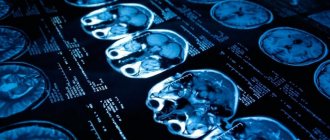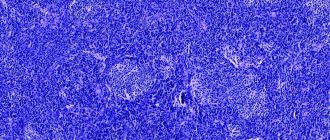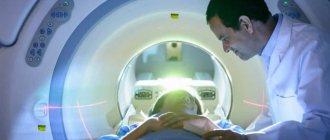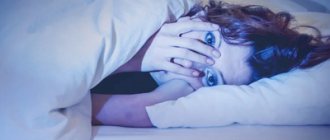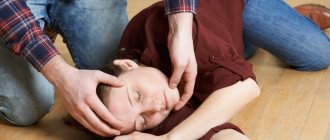What is epilepsy?
In fact, this disease has not even been fully studied; in regional hospitals, for more than half of patients with epilepsy, doctors cannot even tell the cause of the disease, and all treatment consists of pills that simply inhibit brain function, thereby reducing the number of seizures, and this does not always help and not everyone.
Meanwhile, the disease is based on 2 factors: inherited predisposition, environmental influences, and usually organic brain damage. In most cases, epilepsy is not only a self-sustaining, but also a progressive process, accompanied by impaired metabolism of brain tissue, hypoxia (oxygen starvation), and impaired blood supply to the brain. An attack, especially a convulsive one, is stressful for many body systems, especially the central nervous system.
Another unfavorable consequence of immune disorders in epilepsy is DIC (disseminated intravascular coagulation) syndrome, which not only leads to metabolic disorders in the brain, but also impairs the transport of antiepileptic drugs into the brain tissue. This syndrome occurs in 100% of patients with status epilepticus and in most patients with frequent seizures.
Treatment of vasomotor rhinitis
Treatment of vasomotor rhinitis in adults and children should be carried out taking into account the triggering factors of the disease, both external and internal, and their elimination.
Therapy at home
If symptoms are determined to be related to certain conditions (alcohol use, stress, etc.), lifestyle changes must be made to avoid such situations. It is important to influence the function of the autonomic nervous system through regular exercise and hardening.
Folk remedies for vasomotor rhinitis
Popular folk recipes for vasomotor rhinitis:
- instillation of beet juice, Kalanchoe, birch sap, menthol oil into the nose;
- lubricating the mucous membrane with ointments based on petroleum jelly and walnut or calendula leaves;
- rinsing the nasal cavity with a solution of honey;
- acupressure in the area of the bridge of the nose and at the upper edge of the wings of the nose;
- breathing exercises, including slow inhalation through one nostril and even slower exhalation through the other; The exercise must be repeated 10 times for at least a month.
Pharmacotherapy
Several groups of drugs are used to treat vasomotor rhinitis in adults:
- local H1 receptor blockers (azelastine, levocabastine) for nasal discharge, sneezing, congestion;
- intranasal glucocorticoid drugs when congestion predominates;
- local stabilizers of mast cell membranes with the predominance of sneezing and congestion in children over 2 years of age;
- local M-anticholinergic agents (ipratropium bromide) with a predominance of strong nasal discharge;
- peptidergic neuron blockers (capsaicin);
- botulinum toxin A.
The first choice drugs are glucocorticoids for intranasal use - Avamis and Beclomethasone sprays, Benacap drops, Dezrinit, Nazarel, Nasonex, Nasobek, Nosephrine, Rinoclenil, Tafen-Nasal and Flixonase sprays.
For the treatment of vasomotor rhinitis in children over 6 years of age, budesonide nasal spray is used, 1 to 2 doses 1 to 2 times a day for 3 months. The exact dosage should be selected by the doctor in accordance with the age of the child. Before using the hormonal spray, it is recommended to rinse your nose with saline solution.
Budesonide is also recommended for the treatment of drug-induced rhinitis; the course of treatment is at least 2 months. If ineffective, short-term use of prednisolone tablets is possible. If these measures do not allow the patient to wean off decongestants, surgery is the only option.
Treatment of vasomotor rhinitis in pregnant women
Provoking factors, active and passive smoking, and manifestations of gastroesophageal reflux are eliminated.
The most effective and safe method of therapy in this group of patients is nasal rinsing with saline solution, irrigation with sea water, breathing exercises and occasional use of decongestants.
Of the glucocorticoids in pregnant women, only budesonide is the most studied and therefore considered safer. It is prescribed for existing allergic rhinitis, complicated by the addition of a vasomotor variant of the pathology.
Surgical treatment of vasomotor rhinitis
At the beginning of treatment, the only surgical procedure that should be performed in patients with vasomotor rhinitis is the correction of possible deformation of the nasal septum. Only if drug treatment is ineffective within a year can other interventions be considered.
Any operation for vasomotor rhinitis only facilitates nasal breathing. It has very little effect on symptoms such as nasal discharge, itching, sneezing, and decreased sense of smell.
For vasomotor rhinitis, the following interventions can be performed:
- displacement of the nasal concha;
- removal of part of the bone and soft tissue under the mucous membrane;
- plastic techniques;
- superficial or submucosal interventions.
It is preferable to use the operations of the last group: vasotomy, electrocoagulation, ultrasonic disintegration, laser intervention, shaver or radiofrequency reduction, cryosurgical method. The choice of intervention method is determined individually for each patient. The intervention can be supplemented by partial denervation of the vessels of the mucous membrane.
Surgical treatment of vasomotor rhinitis is also carried out in children. It is often combined with adenoid removal, correction of the nasal septum and other interventions.
The result of any operation for vasomotor rhinitis may be unstable. Sometimes repeated intervention is required.
Modern treatment of epilepsy
Modern chemotherapy drugs used to treat epilepsy alleviate, but do not cure the disease; moreover, they damage the psyche. Epilepsy is treated for years, sometimes throughout life. If there are no seizures while taking anticonvulsants, they cannot be canceled abruptly, otherwise the seizures may recur with renewed vigor. In general, it is difficult to call this a treatment; in fact, it is simply a muffling of symptoms.
In general, the whole world has been successfully fighting this disease for a long time, but for us everything is still difficult! Yes, it seems that there are centers with modern equipment that are able to find the cause of the disease and treat exactly the cause, but it is difficult for an ordinary person to get there. So the person is left alone with his diagnosis and traditional methods and herbal medicine come in. Let's say right away that this is not entirely correct, herbal medicine is very good in this case as a supporting method of treatment, but not as the main one, although for many, unfortunately, this is the only method of treatment.
Prevention
Considering the possible provoking factors of the disease, its prevention requires the following actions:
- avoid constant stay in rooms with polluted air, use respirators if necessary;
- get vaccinated against the flu, try not to get sick during cold season;
- correct hormonal imbalances in a timely manner;
- carry out treatment of gastroesophageal reflux disease and other pathological refluxes;
- When the first symptoms of ENT pathology appear, immediately contact an otolaryngologist.
At the NIKIO center, ENT doctors with extensive experience and high qualifications conduct consultations. The clinic is well equipped and has all the capabilities for timely diagnosis and necessary treatment of vasomotor rhinitis in adults and children. We invite all people suffering from this disease to our medical center.
The use of herbal medicine in the treatment of epilepsy
The use of herbal medicine, that is, herbal treatment, makes it possible to influence all stages of the development of epilepsy, starting with the causes, and this can even be tonsillitis, sinusitis, pyelonephritis, inflammation of the genital organs, which contribute to increased pressure inside the skull, a general deterioration of the condition and, as a consequence, excitability of the brain . On the other hand, long-term use of anticonvulsants disrupts the functioning of all internal organs (pancreas, liver, stomach, intestines, kidneys, hematopoietic system), which aggravates the severity of epilepsy. It turns out to be a vicious circle.
Herbal medicine allows you to break this vicious circle. Using sedative and anticonvulsant herbs, we influence all stages of its development, using the antimicrobial, antiviral, antiparasitic, anti-inflammatory, adaptogenic, antiallergic, immunostimulating, detoxifying effects of plants.
Herbs normalize the functioning of the pancreas, kidneys, cardiovascular system, liver, regulating blood pressure, eliminating diarrhea and constipation, dysbacteriosis, normalizing the mental state and functionality of the gastrointestinal tract of patients, eliminating depression, improving sleep.
The inclusion of diuretic herbs allows you to reduce intracranial arterial pressure, while there is no need to take potassium supplements, since it is contained in many herbs. Plants with antidepressant effects can not only improve mood and relieve anxiety and fears, but also improve the processes of adaptation (adaptation) of the body to the environment, reducing the destructive effect of stress, improving overall well-being, increasing vitality, reducing the severity and frequency of attacks. The use of herbal medicine leads to the disappearance of patients' resistance to the action of anticonvulsants, increasing the effectiveness of anticonvulsant therapy and reducing its toxic effects. This allows you to reduce the doses of these drugs over time and even stop them altogether, doing this slowly and gradually against the backdrop of continuous and long-term use of herbs, even in the absence of attacks.
The feasibility of treating epilepsy with herbal medicine
Although we are against herbal medicine being the main method of treating epilepsy, it is still worth noting that there are plenty of examples of herbal cures for this disease in the world. Herbal medicine should be used as a supportive method, and treatment should be carried out by professionals, especially in cases where attacks recur more than once every six months. And remember, in order to defeat epilepsy, you need a general healthy state of the body, and this can at least be achieved through physical exercise, fresh air and proper nutrition.
It is important to remember that herbal medicine is a whole science and you should not neglect it, especially when treating serious diseases. We recommend that you read the material: Why doesn’t herbal medicine help?
Causes
Vasomotor rhinitis primarily affects the inferior turbinates. They humidify and warm the air, but against the background of the disease, this function is disrupted, and the vessels of the mucous membrane do not react correctly to environmental conditions. Constant congestion develops - the main symptom of vasomotor rhinitis. Violation of vascular regulation is associated with an imbalance of the autonomic nervous system, which is responsible for vascular tone.
External and internal factors cause such an imbalance. Environmental conditions include:
- temperature too low or high;
- rapid change in atmospheric pressure;
- air pollution from smoke, substances with a strong odor, the effects of spicy foods, alcohol, nicotine and tar from cigarette smoke, cocaine use;
- respiratory diseases of a viral nature.
Internal factors that can provoke autonomic imbalance:
- stress and strong emotions;
- physical and sexual stress;
- hormonal diseases: ovarian dysfunction (puberty, pregnancy, menstruation), hypothyroidism, excess growth hormone (acromegaly and gigantism);
- pathological reflux (reflux of contents) from the stomach into the esophagus, from the stomach into the pharynx and from the pharynx into the larynx;
- deformation of the nasal septum;
- decreased patency of the upper respiratory tract (adenoids in children).
There may be a hereditary predisposition to the occurrence of the disease.
Rhinitis caused by medications has 2 options. The first of them is associated with long-term use of vasoconstrictor drops, as a result of which vascular receptors lose sensitivity to internal vasoconstrictor factors and chronically dilate.
The second variant of drug-induced vasomotor rhinitis occurs with long-term use of medications that affect the general tone of the autonomic nervous system. These are many drugs for hypertension (ACE inhibitors, alpha and beta blockers, methyldopa, calcium antagonists), antipsychotics, anticonvulsants, oral contraceptives, drugs for regulating potency (sildenafil).
Quite often, rhinitis develops in pregnant women and goes away after childbirth. The reasons for this phenomenon are being studied by doctors. It is believed that hormonal imbalance, stress, and an increase in the volume of blood circulating in the body are important.
Herbs for epilepsy
In fact, there are several dozen herbs for epilepsy, but we will talk about the most popular and frequently found in the literature.
blue cyanosis
Blueberry grass is the main plant in folk medicine that is used to fight epilepsy. The flowers are quite unpretentious and can be grown in the garden as a beautiful ornamental plant, and, if necessary, cut and used as an anticonvulsant and sedative. Blueberry is grown from seeds.
Common wormwood
The herb wormwood (chernobyl) is also popular and is used in sedative and anticonvulsant preparations; you can read more about its properties here.
Oregano and St. John's wort
Tea made from a mixture of oregano herb and St. John's wort herb can give a good effect in the fight against epilepsy; these plants can also be taken separately, but the effectiveness will decrease. And another advantage of this tea is that you can drink it as an everyday drink without getting used to it, and the pleasant taste of such tea leaves will help you drink it not as a medicine, but as a tasty and healthy drink. More information about these herbs can be found in our articles: St. John's wort, oregano.
Spiraea
Flower tea made from meadowsweet flowers is a mild anticonvulsant and is a good disease prevention if seizures have not occurred for a long time. Since epilepsy is a disease that can subside and manifest itself after a few years when a person stops taking anticonvulsants, meadowsweet will be an excellent preventive measure after stopping treatment. It is very aromatic and tasty, it is not addictive, so meadowsweet flower tea can be drunk as an everyday drink.
Maryannik
The herb maryanika, another name Ivan-da-marya, is very popular in folk medicine, although its effectiveness in the treatment of epilepsy has not yet been scientifically proven and this popularity was formed even before the advent of the Internet.





